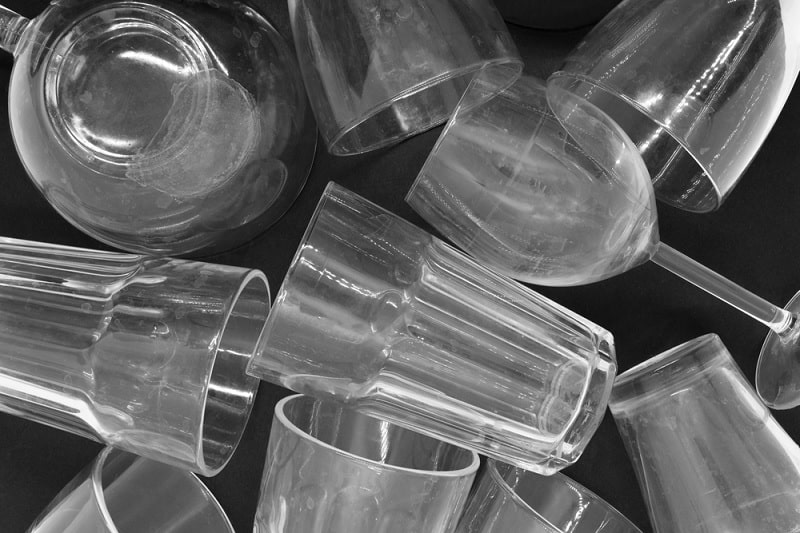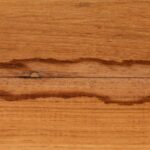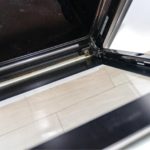Tired of seeing cloudy water spots on your drinking glasses or shower screen? Struggling to remove them? Then you’re in the right place.
In this post, we’ll provide you with multiple methods for how to get water marks off glass, using simple, effective techniques.
That way, you can wave goodbye to unsightly stains and enjoy crystal-clear surfaces once more!
We’ll also touch on what causes them and how to prevent water marks in future. Let’s get started…
What Causes Hard Water Stains on Glass?
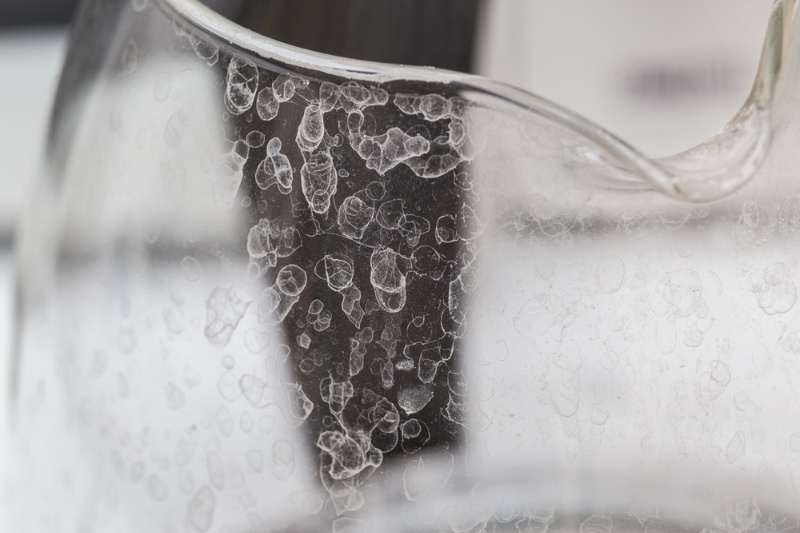
Hard water stains on glass are a common problem caused by high levels of minerals, like calcium and magnesium.
When the water evaporates, a visible residue – typically white and chalky – is left behind on the glass. Over time, this builds up and forms hard water stains.
Soapy deposits are another contributing factor, as the chemicals in them can react with the minerals in the water. This makes them more likely to stick to the glass and therefore, harder to remove.
Due to this, you may spot water marks on your shower door even after cleaning. You may also have this issue if you leave your glasses to dry in the heat of the dishwasher.
Either way, you should try out one of the methods below to help dissolve the layer of scum.
What Dissolves Limescale on Glass?
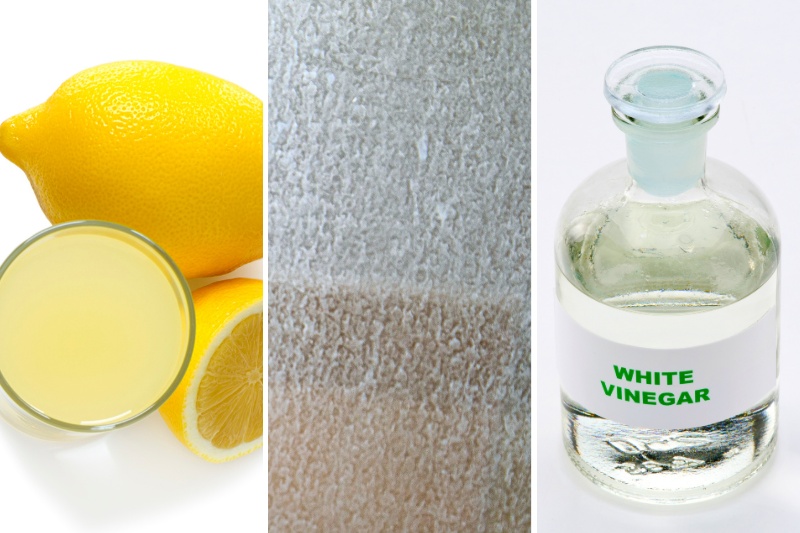
Limescale, which is mainly made up of calcium carbonate, is generally responsible for the cloudy layer on your glass surfaces.
Thankfully, as hard water deposits are alkaline, you can remove limescale from glass with an acid-based cleaner.
As a result, lemon juice (containing citric acid) and white vinegar (containing acetic acid) are both highly effective. Not to mention affordable and widely available.
Otherwise, you can try a lightly abrasive paste or tool instead – more on that soon.
How to Remove Water Marks from Shower Glass & Windows
Diluted white vinegar
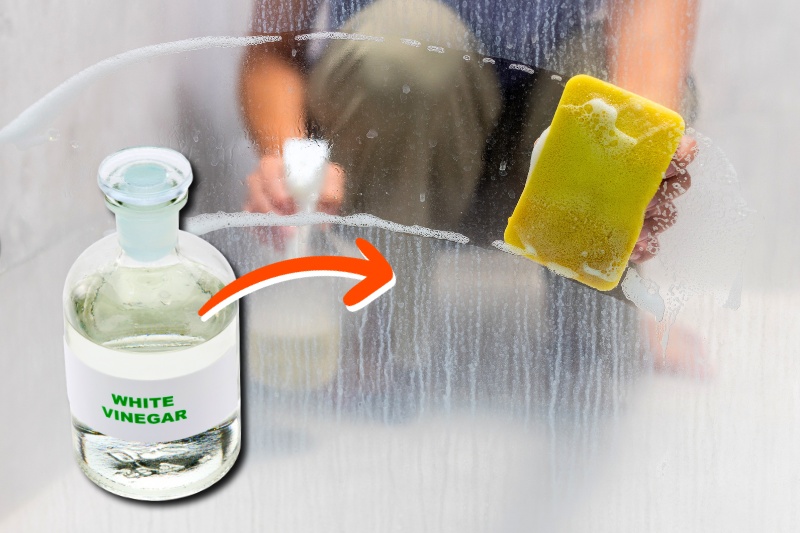
One of the most popular ways to get water marks off glass is using white vinegar.
Simply mix up a 50:50 vinegar and warm water solution in a spray bottle and apply it to the stained glass surface.
Let it sit for 10 minutes, then scrub the surface with a non-scratch sponge or cloth.
Rinse thoroughly with warm water, then use either a squeegee or a microfibre cloth to remove any leftover water droplets. By doing so, the glass should dry free of water spots and streaks.
Tip: if you don’t like the vinegary smell, add a few drops of lemon essential oil to the mixture.
White vinegar & washing up liquid
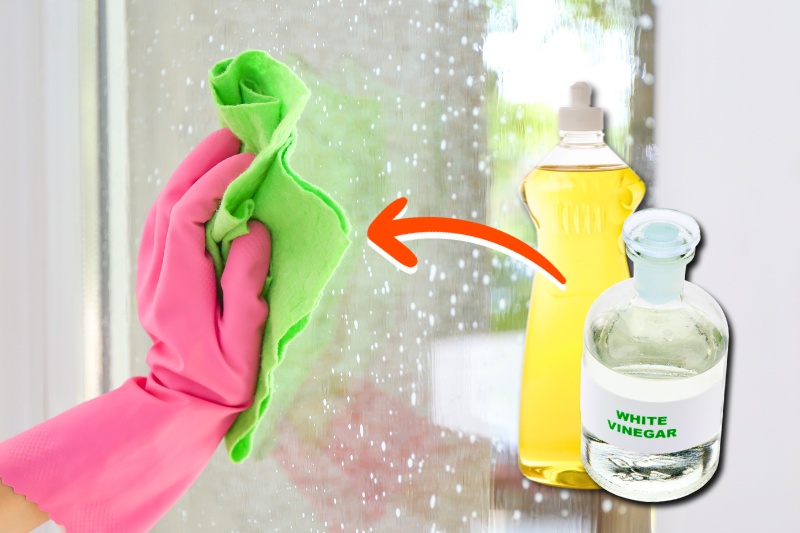
If you’ve tried the first method and can still see water marks, don’t panic. Another highly effective option, suitable for tougher stains, is a 50:50 white vinegar and washing up liquid solution.
Mix and spray onto the glass as above, then wipe a sponge over the surface to make sure it is fully coated.
The washing up liquid will help the vinegar adhere to the glass so it can stay soaking for longer without running down your shower screen or window.
Leave for 15 minutes, then gently scrub the surface with a damp cloth or sponge. Rinse well to remove the soapy residue, then squeegee off the excess water.
Finish up with a product like Ecover Window Cleaner and buff with a microfibre cloth to ensure there are no streaks.
Fresh lemon juice
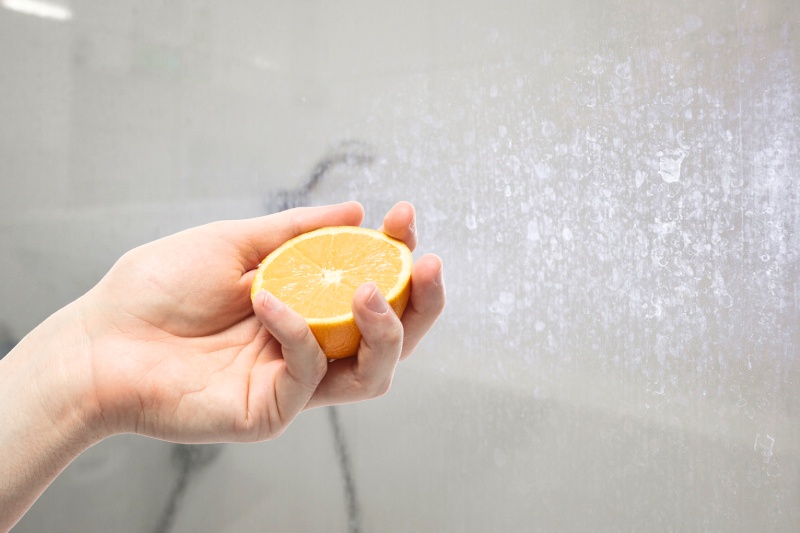
Prefer natural cleaning methods? Simply cut a lemon in half and use it to scrub your stained glass free of water marks.
As you press the lemon segment into the surface, the mildly acidic juice will be released.
This works to break down the white layer left behind by hard water and adds shine.
It also smells better than vinegar! Just remember to rinse well when you’re done.
Tip: you can also use lemon juice to clean other bathroom elements like stainless steel taps.
Bicarbonate of soda paste
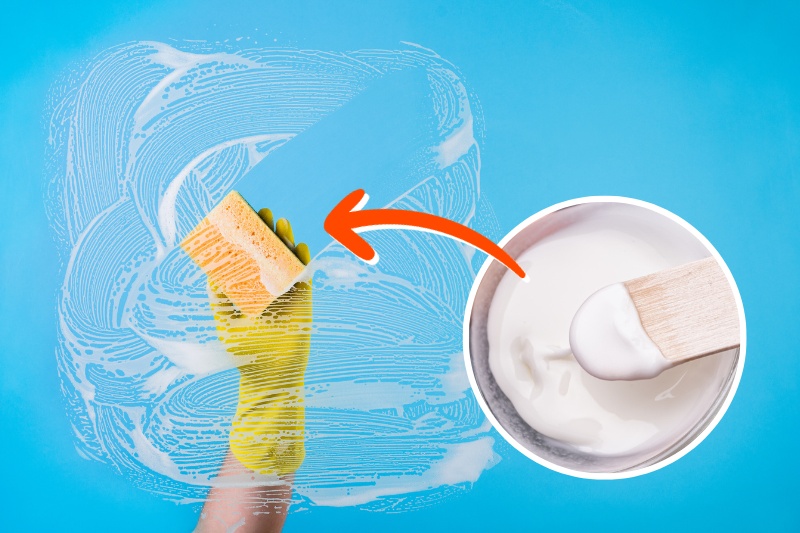
If the water deposits have crusted over and you’re finding them hard to remove, a mild abrasive could be useful.
One option is to create a gritty bicarbonate of soda paste by combining the powder with a small amount of water.
You can then use it for extra scrubbing power when trying to lift the mineral deposits.
While effective, this method can leave its own chalky residue, so rinse thoroughly and wipe clean with glass cleaner afterwards.
Fine steel wool or a magic eraser
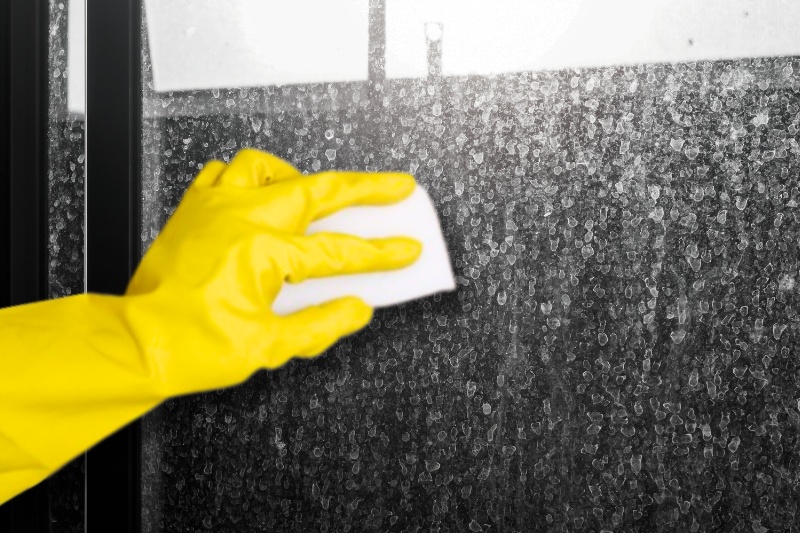
Alternatively, you could use a slightly abrasive cleaning tool instead. This ultra fine steel wool (0000 grade) or a Clear Off Magic Eraser would work well. And all you need is water – no chemicals whatsoever.
Just dampen your chosen tool and gently scrub away. When you’re done, rinse the glass to remove any fibres or loosened debris, and wipe dry.
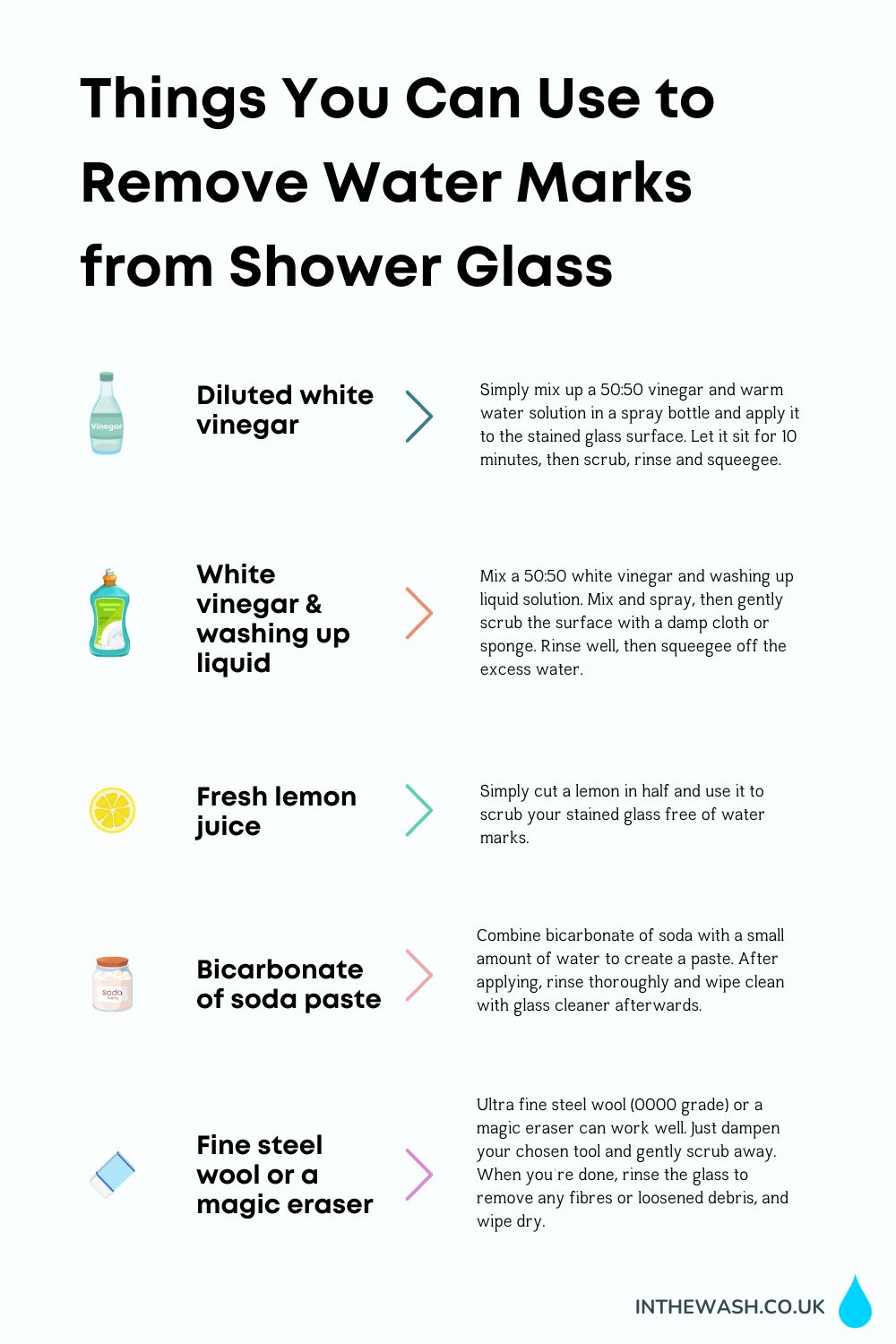
How Do You Remove Hard Water Stains from Drinking Glasses?
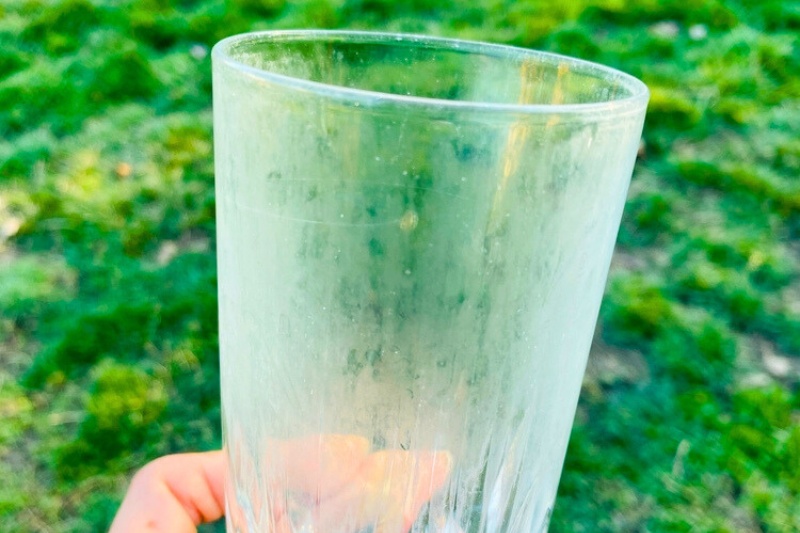
The easiest way to get water marks off drinking glasses is a vinegar soak.
You can use either of the first two solutions mentioned above, depending on the severity of the stains. But rather than combining the ingredients in a spray bottle, you’ll use them fill a washing up bowl.
You can then submerge your limescale-covered glasses in the vinegar solution for 30 minutes.
After that time, take a non-scratch plastic scourer and scrub off the loosened water stain.
If it’s still stuck on, you can also try a small amount of bicarbonate of soda. However, we’d recommend switching to a sponge when scrubbing your glasses with this gentle abrasive.
Finally, rinse well with warm water and dry with a microfibre cloth right away.
Tips for Preventing Water Marks on Glass
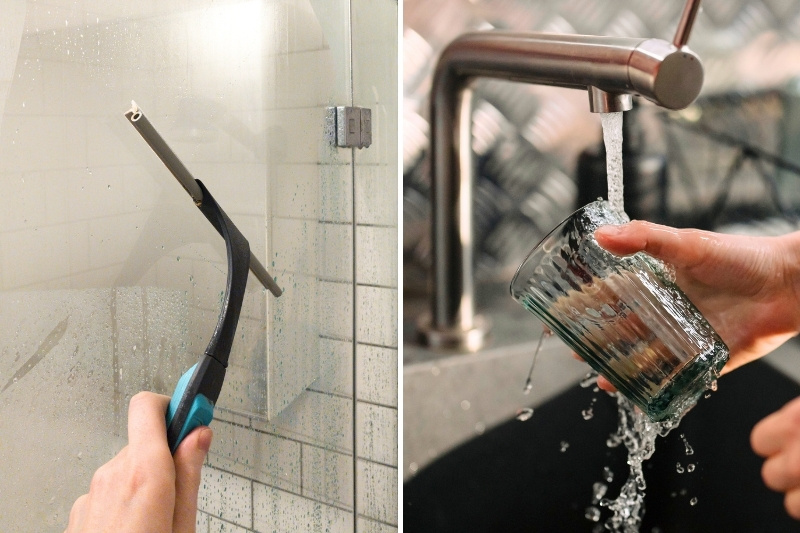
Now you know how to get water marks off glass, here’s how to prevent them to start with:
- Squeegee your shower door after each use and wipe down with white vinegar weekly.
- Hand wash your drinking glasses instead of putting them in the dishwasher. Or remove the glasses as soon as the cycle finishes and dry them off with a lint-free towel.
- If you live in a hard water area, you may want to consider installing a water softening system. This will help to reduce the mineral deposits in your water and make cleaning easier in the long run. It will also improve the taste of your drinking water, so why not?
Want more tips for banishing hard water stains from your home? From how to remove water marks from wood to ridding your countertops of white spots, we’ve got you covered.

A proud Yorkshire lass with a love for movies, music and cosy nights in! Once a self-confessed avoider of cleaning, she’s always on the lookout for new ways to make household chores as quick and simple as possible.
